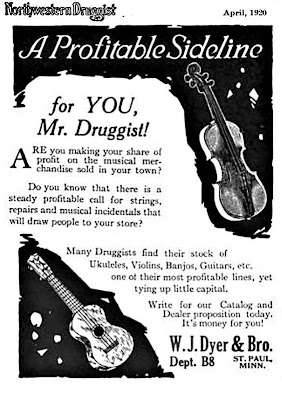How could anyone, anywhere have a problem
with the United Nations declaring "The International
Year of the Disabled" in 1981?
Such designations are meant to draw attention
to different aspects of the human condition,
to goad politicians and others into learning more
and doing more about the challenges different
people face here on earth- the disabled, refugees
and so on and so on...
And yet, in England at least, there was a man
who took great exception to the whole idea of
an "international year of the disabled", and he
set out to do something about it.
His name was Ian Dury, and as it turned out
he was profoundly qualified to speak - and in
fact sing -to the issue.
Dury was himself disabled. In 1949, at the
age of seven, he had contracted polio from
a mouthful of water taken in a public swimming
pool and nearly died.
After a year and a half in hospital, he was sent
to Chailey Heritage and Craft School. Founded
in 1894, it was run by a charitable organization
called the “Guild of the Poor Brave Things”.
Far from coddling the the kids, the school
believed in toughening them up and in Dury's
case, it seems to have worked although perhaps
not in the way intended.
Thirty years later, the UK was in the throes
of punk culture and Dury was at the forefront.
In 1979, his unique blend of punk aesthetics
and English music hall traditions led to a number
one single called "Hit Me With Your Rhythm Stick".
Concerts with his band the Blockheads were
staggering popular events at home and in Europe.
He thought the Year of the Disabled was patronizing
and ‘crashingly insensitive’. His response was to
write a song against the naivety and arrogance
of well-meaning liberals that would speak to his
life as a disabled person and with any luck, be
banned from the airwaves.
The song was banned by the BBC and other UK stations.
The chief executive of the Spastics Society, expressed
the fear that it
would "strengthen people's mistaken
or wrong images about disability and
spastic people
in particular".

Dury felt it was "it was the second best song"
he'd ever written.

Spasticus Autisticus
by Ian Dury and Chaz Jankel
I'm spasticus, I'm spasticus
I'm spasticus autisticus
I'm spasticus, I'm spasticus
I'm spasticus autisticus
I'm spasticus, I'm spasticus
I'm spasticus autisticus
I wibble when I piddle
Cos my middle is a riddle
I'm spasticus, I'm spasticus
I'm spasticus autisticus
I'm spasticus, I'm spasticus
I'm spasticus autisticus
I'm spasticus, I'm spasticus
I'm spasticus autisticus
I dribble when I nibble
And I quibble when I scribble
Hello to you out there in Normal Land
You may not comprehend my tale
or understand
As I crawl past your window give me
lucky looks
You can be my body but you'll never
read my books
I'm spasticus, I'm spasticus
I'm spasticus autisticus
I'm spasticus, I'm spasticus
I'm spasticus autisticus
I'm spasticus, I'm spasticus
I'm spasticus autisticus
I'm knobbled on the cobbles
Cos I hobble when I wobble
Swim!
So place your hard-earned peanuts
in my tin
And thank the Creator you're not
in the state I'm in
So long have I been languished
on the shelf
I must give all proceedings
to myself
I'm spasticus, I'm spasticus
I'm spasticus autisticus
I'm spasticus, I'm spasticus
I'm spasticus autisticus
I'm spasticus, I'm spasticus
I'm spasticus autisticus
54 appliances in leather and elastic
100 000 thank yous from 27 spastics
Spasticus, spasticus
Spasticus autisticus
Spasticus, spasticus
Spasticus autisticus
Spasticus, spasticus
Spasticus autisticus
Widdling, griddling, skittling,
diddling, fiddling, diddling,
widdling, diddling spasticus
I'm spasticus, spasticus
Spasticus autisticus
Spasticus, spasticus
Spasticus autisticus
Spasticus, spasticus
Spasticus autisticus
Spasticus, spasticus
Spasticus autisticus
I'm spasticus!
I'm spasticus!
I'm spasticus!
I'm spasticus!
I'm spasticus!
I'm spasticus!
I'm spasticus!
Spasticus!
More than 30 years later, there came a moment
of curious redemption for Ian Dury and his song....

... when it was used to open the summer
games in London. Behind Stephen Hawking,
the dance act Orbital
started a mash-up of
his voice, which lead the Graeae Theatre Company
of disabled performers into singing "Spasticus
Autisticus" to the thousands of people in the
stadium and millions watching on television
around the world.
‘Spasticus Autisticus’: The day the BBC banned Ian Dury




















































